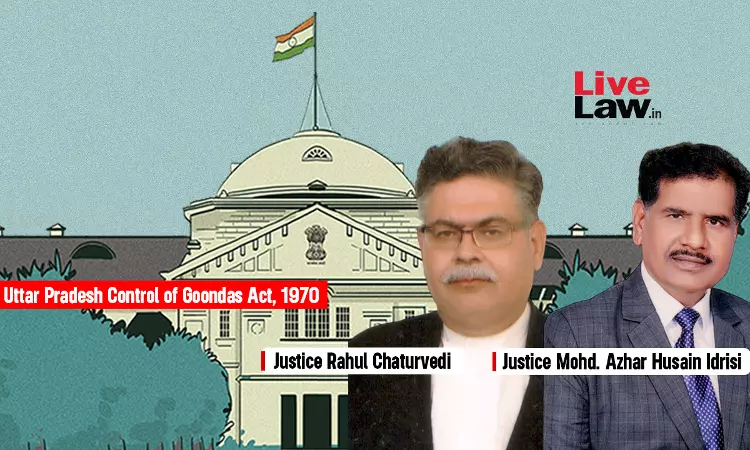UP 'Goondas Act' Being 'Rampantly Misused': Allahabad HC Directs UP Govt To Frame Uniform Guidelines For Its Invocation By Oct 31
Sparsh Upadhyay
23 Aug 2023 7:19 PM IST

Next Story
23 Aug 2023 7:19 PM IST
Observing that the provisions of Uttar Pradesh Control of Goondas Act, 1970 are being rampantly missed, the Allahabad High Court has directed the State Government to form uniform guidelines by October 31 regarding the applicability of this Act The bench of Justice Rahul Chaturvedi and Justice Mohd. Azhar Husain Idrisi ordered thus as it observed that in the state of UP, there is no uniformity...
